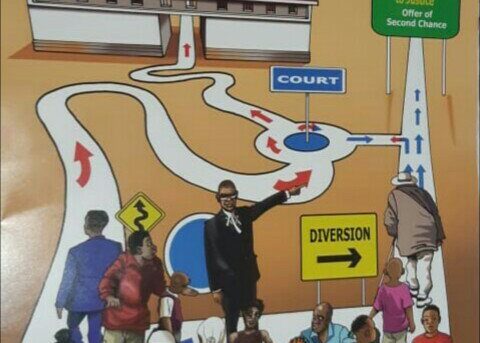In its pursuit of a fair and accessible criminal justice system, Kenya recognizes the need for effective and efficient handling of criminal cases on an equal basis. The Constitution underscores the principles of affordability, accessibility, and availability of justice.
However, inherent institutional barriers have hindered the realization of these principles, leading to the development of the Diversion Policy. This policy aims to give practical effect to constitutional provisions and overcome the following institutional challenges.
Case Backlogs in the Courts
The Kenyan court system grapples with a significant backlog of cases, with approximately 70% classified as petty offenses. These offenses, often economically or socially driven, contribute to a strain on institutional capacity. Weaknesses in the system make it challenging for citizens to resolve disputes efficiently, underscoring the urgency for a more streamlined and accessible approach.
Limited Prosecution Resources
Prosecution resources, both human and operational, are stretched thin, with prosecutors managing extensive cause lists daily. The strain on resources hampers the timely resolution of cases, exacerbating the challenges faced by the criminal justice system.
Overcrowded Prisons
Kenya faces a severe prison congestion problem, with a capacity to handle 26,687 inmates while grappling with a prison population of 52,769 as of mid-2019. Prolonged pre-trial detention significantly contributes to overcrowding, with the occupancy level reaching 197.7% in the 129 penal institutions. Poor conditions in prisons highlight the strain on human and financial resources, necessitating urgent measures to address the issue.
Furthermore, the lack of adequate remand facilities exacerbates the problem, especially concerning juvenile offenders. Exposing inexperienced offenders, particularly children, to the general prison population risks perpetuating criminal behavior and undermines internationally recognized principles aimed at protecting the vulnerable.
Urgent Need for Decongestion
The pressing need to decongest the prison system is a critical aspect addressed by the Diversion Policy. By providing a practical solution to reduce the number of remandees in custody, diversion not only alleviates the strain on prison facilities but also aligns with broader justice-based goals for victims and the community.
Probation and Aftercare Service
Kenya’s Probation and Aftercare Service offer a foundation for the development of alternatives to imprisonment, facilitating the social reintegration of offenders. Community-based sanctions emerge as proven alternatives, offering a path to rehabilitation and reducing recidivism.
In conclusion, the Diversion Policy in Kenya is not merely a procedural shift; it is a strategic response to pressing challenges within the criminal justice system. By addressing case backlogs, resource limitations, prison overcrowding, and emphasizing rehabilitation, the policy represents a holistic approach towards building a fair, accessible, and effective justice system in Kenya. Through these initiatives, Kenya aims to align its practices with constitutional ideals and international standards, fostering a justice system that serves both offenders and the community.




